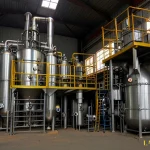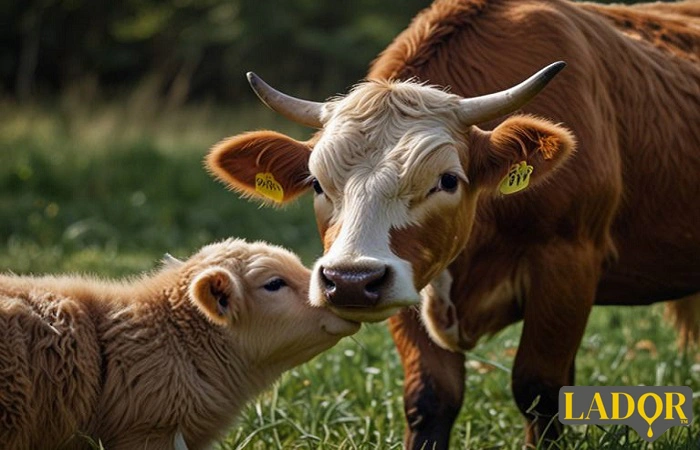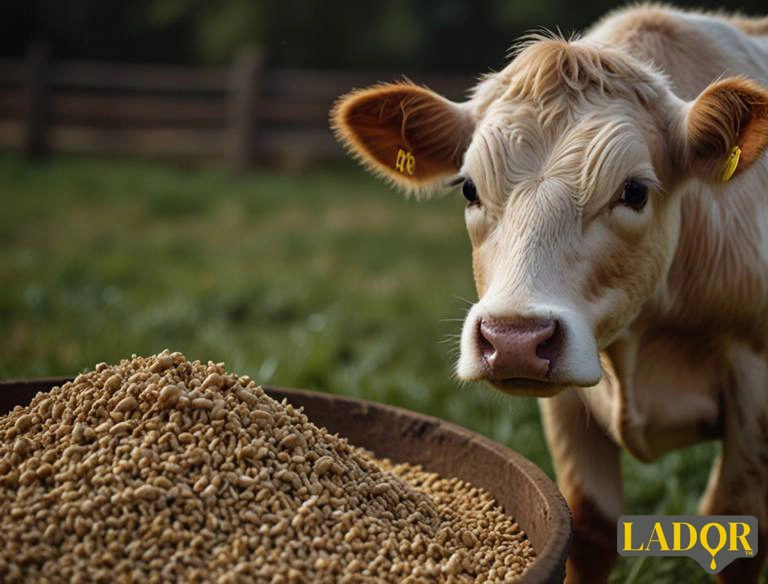

Feeding dairy cows is one of the most critical factors in increasing milk production and maintaining their health. A balanced and complete diet, containing all the nutrients a cow needs, is essential to maximize milk production. Join us as we discuss dairy cow feed in detail.
A dairy cow’s diet generally includes the following:
Proper nutrition strengthens the immune system and reduces the incidence of disease in dairy cows, helping to increase the cow’s productive lifespan and reduce livestock replacement costs. Proper nutrition also helps to improve milk quality and increase the amount of milk fat and protein.
The diet of a dairy cow can vary depending on several factors such as the stage of lactation, milk production, forage quality, climate conditions, and costs. In general, dairy cow diets are divided into two main categories:
This type of diet mainly consists of high-quality forages such as alfalfa, clover, corn silage, and other dry or fresh forages. In this type of diet, concentrates are used in limited amounts or not at all. A forage-based diet has the following advantages:
This type of diet is a combination of forage and concentrate. Concentrates contain high concentrations of nutrients such as grains, oilseeds, and mineral and vitamin supplements. A combined diet is more suitable for high-milk-producing cows due to the higher supply of energy and nutrients.

The nutritional needs of a dairy cow depend on various factors, and these factors affect the type and amount of feed required to maintain health and increase milk production. Here are some of the most important factors affecting the needs of a dairy cow:
High-milk-producing cows need more energy and nutrients than low-milk-producing cows.
The higher the milk production, the higher the need for protein, energy, and minerals.
The quality of forage consumed directly affects the nutritional value of the diet.
High-quality forage contains more nutrients and reduces the need for concentrate use.
In cold weather conditions, the cow needs more energy to maintain body temperature.
In hot and humid weather conditions, feed intake decreases and the need for water increases.
Calves and young cows need more nutrients for growth.
Different breeds of cows have different nutritional needs.
Diseases and health problems can affect the nutritional needs of a cow.
Sick cows need more energy and nutrients for recovery.
Cows that have more physical activity need more energy.
Pregnant cows need more energy and nutrients for fetal growth.

Proper dairy cow feed is one of the most important factors in increasing milk production and maintaining cow health. To formulate an appropriate diet, it is necessary to carefully consider the factors affecting the cow’s nutritional needs. It should be noted that in addition to forage and concentrate, which have been discussed in detail, mineral and vitamin supplements are also needed to meet the cow’s needs for minerals and vitamins, protected fat to provide extra energy and improve milk production, and live yeast to improve digestion and absorption of nutrients.
Aala Oil Sepahan factory, with years of experience, advanced machinery, and experienced specialists, has started producing various types of animal powders, oils, and feed, especially dairy cow feed.